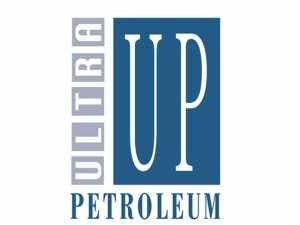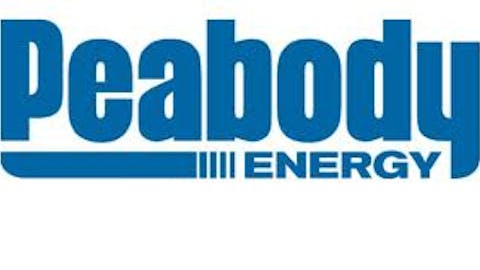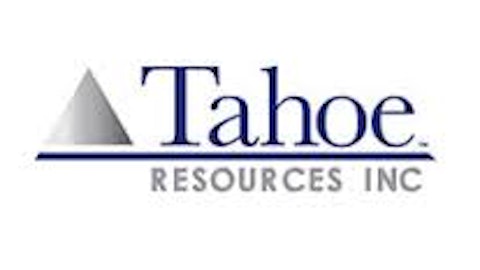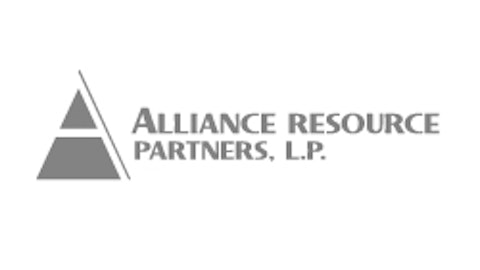Natural gas isn’t as cheap as it was a year ago and that’s leading to big changes in the energy market. That will be a good thing for Ultra Petroleum Corp. (NYSE:UPL), Royal Dutch Shell plc (ADR) (NYSE:RDS.A), and Alliance Resource Partners, L.P. (NASDAQ:ARLP).
Gas Costs
Drilling for natural gas costs money. How much varies by company, but Ultra Petroleum Corp. (NYSE:UPL) pegs the average cost at about $7, with a high of around $10 and a low of $3. Ultra Petroleum Corp. (NYSE:UPL), is among the lowest-cost producers. However, with natural gas trading in the $4 range, a lot of drillers aren’t making money.
So, while natural gas prices have increased notably off of their lows in the $2 range, they still aren’t high enough for the natural gas industry to see big profits. A company like Ultra Petroleum Corp. (NYSE:UPL), however, is benefiting now from rising prices.
Ultra Petroleum Corp. (NYSE:UPL)’s revenues and earnings jump around, like most commodity focused companies. And 2012 was a particularly ugly year because a $2.9 billion non-cash write-down of its gas properties led to a loss of more than $14 a share. That write-down, however, is likely to be reversed in the future as natural gas prices recover, and it didn’t affect the company’s underlying business.
As natural gas prices rise, look for Ultra Petroleum Corp. (NYSE:UPL) to be among the first in line to benefit. The shares offer aggressive investors notable upside potential.
Less Risk
Another company set to benefit from rising natural gas prices is Royal Dutch Shell plc (ADR) (NYSE:RDS.A). Royal Dutch Shell plc (ADR) (NYSE:RDS.A) was among the big players to invest heavily in U.S. natural gas assets as gas prices headed to their highs. That investment quickly turned into a notable problem when prices fell to historic lows.
This investment, coupled with troubles finding new sources of oil, has been a notable drag on the stock. For example, despite their very similar makeups, Exxon Mobil Corporation (NYSE:XOM) and Chevron Corporation (NYSE:CVX) are both afforded premium prices compared to Royal Dutch Shell plc (ADR) (NYSE:RDS.A). In fact, Royal Dutch Shell plc (ADR) (NYSE:RDS.A)’s around 5.3% yield is nearly twice that of Exxon Mobil Corporation (NYSE:XOM) and about two percentage points higher than Chevron Corporation (NYSE:CVX).
All three of the integrated oil giants see their top and bottom lines jump around a lot. However, like the other two, Royal Dutch Shell plc (ADR) (NYSE:RDS.A) has a solid history of regular, though not annual, dividend hikes. Moreover, it is financially strong and offers investors a way to play a gas rebound without the need to invest in a company almost totally dependent on natural gas.
The In-Between Number
With an average break-even price of $7, natural gas drillers are going to have a tough go of it. That’s because high gas prices generally lead electric utilities to switch from gas to cheaper coal. For example, BP plc (ADR) (NYSE:BP)’s annual energy review highlighted that natural gas consumption grew in the United States in 2012, but fell in Europe.
The reason is that natural gas is more expensive in the Old World. However, that trend is one that investors need to watch closely. For example, Peabody Energy Corporation (NYSE:BTU) reported that through the first four months of the year, natural gas use by utilities declined 14% and coal use increased 11%. The rise in natural gas prices was the reason, as utilities switched to the lowest cost fuel source to protect profit margins.
So, companies like Peabody Energy Corporation (NYSE:BTU) and Alliance Resource Partners, L.P. (NASDAQ:ARLP) will also benefit from increasing gas prices. Alliance Resource Partners, L.P. (NASDAQ:ARLP), however, is particularly well positioned. Almost all of its coal comes from Northern Appalachia and the Illinois Basin, two areas that produce coal competitive with natural gas, priced as low as $3.
For more aggressive investors willing to get involved in a totally unloved natural resource, Alliance Resource Partners, L.P. (NASDAQ:ARLP) is a good option for playing rising gas prices. Despite a weak coal market, this limited partnership has been posting record results. Production increases have been able to offset weak coal prices and allowed Alliance Resource Partners, L.P. (NASDAQ:ARLP) to gain market share. This year should see another record and more quarterly dividend increases.
With a yield of around 6.3%, this domestically focused coal company is set to pay investors and rebound strongly as natural gas prices make coal more desirable to utilities.
How High?
Cheap prices have been a boon to demand for natural gas recently. However, there are long-term trends afoot that should support still higher prices. The biggest factor will be the creation of a notable export market, which doesn’t really exist in the United States today. Natural gas being used as a vehicle fuel is another support.
Ultra is a high-risk and direct play on rising prices, while high-yielding Shell shares offer notable exposure backed by a solid and diversified business. Alliance Resource Partners, L.P. (NASDAQ:ARLP), meanwhile, is a high-yield option that will benefit indirectly for those seeking a contrarian investment.
Reuben Brewer has no position in any stocks mentioned. The Motley Fool recommends Alliance Resource (NASDAQ:ARLP) Partners, L.P. and Ultra Petroleum. The Motley Fool owns shares of Ultra Petroleum and has the following options: Long Jan 2014 $30 Calls on Ultra Petroleum, Long Jan 2014 $40 Calls on Ultra Petroleum, and Long Jan 2014 $50 Calls on Ultra Petroleum. Reuben is a member of The Motley Fool Blog Network — entries represent the personal opinion of the blogger and are not formally edited.
The article What Happens When Natural Gas Prices Rise? originally appeared on Fool.com is written by Reuben Brewer.
Copyright © 1995 – 2013 The Motley Fool, LLC. All rights reserved. The Motley Fool has a disclosure policy.






